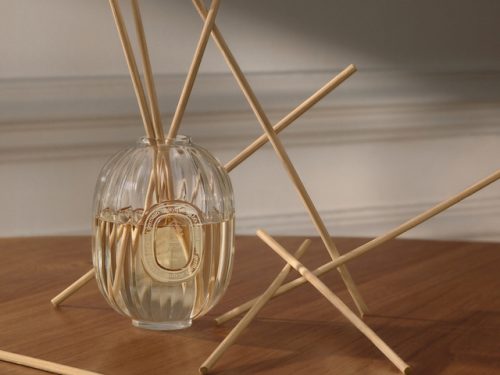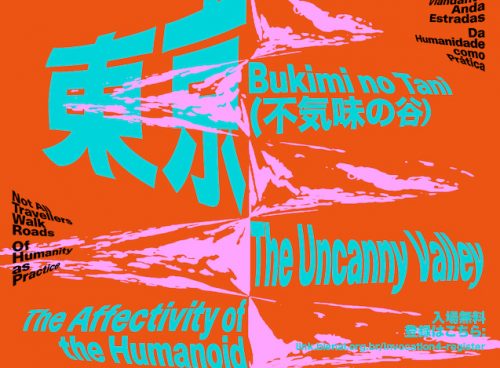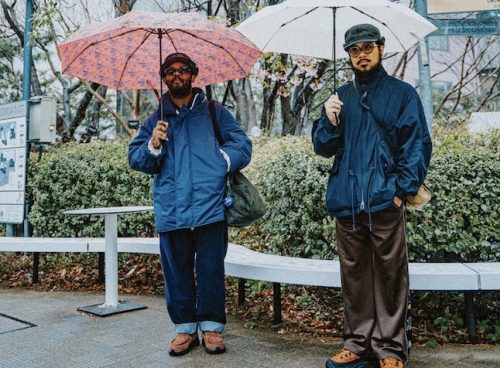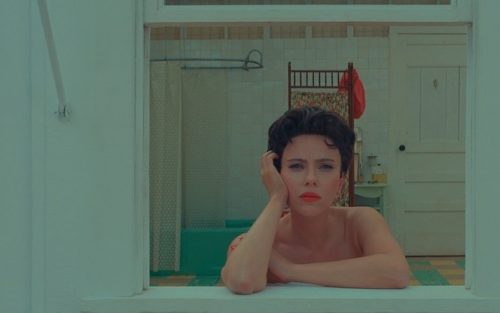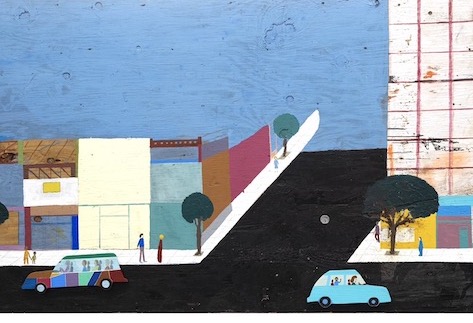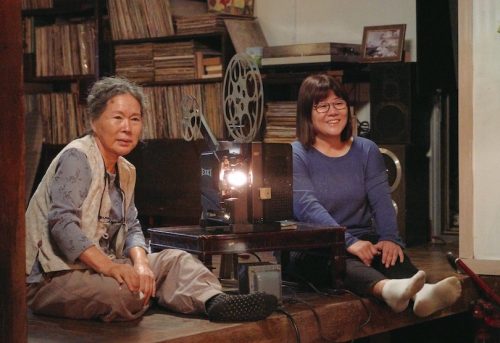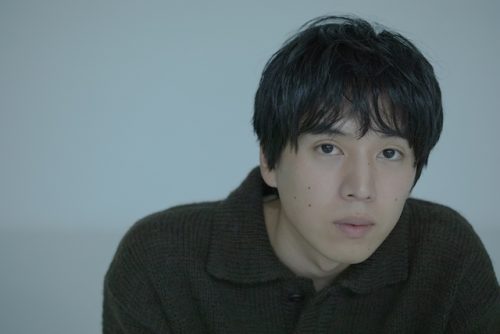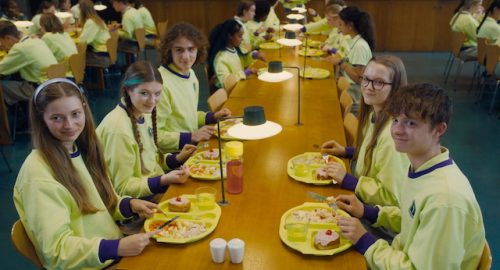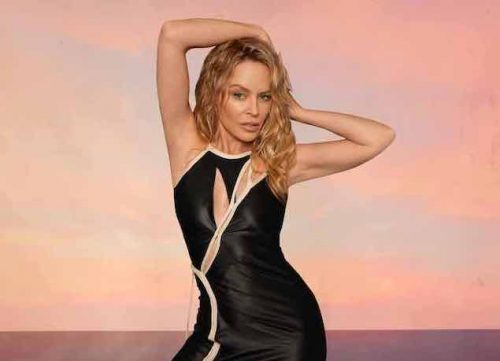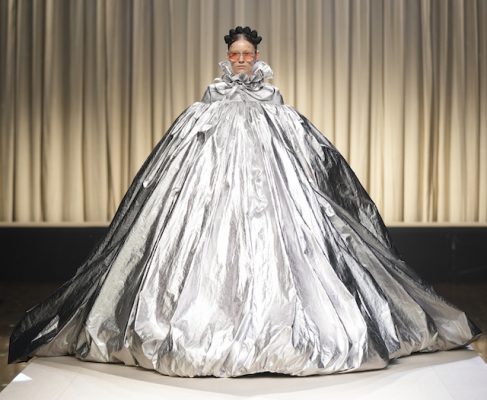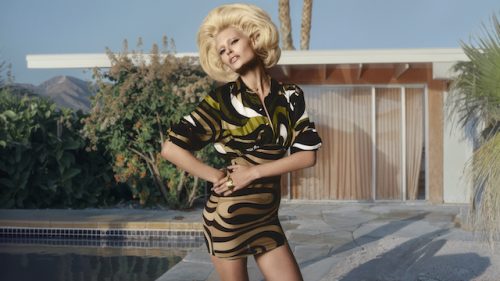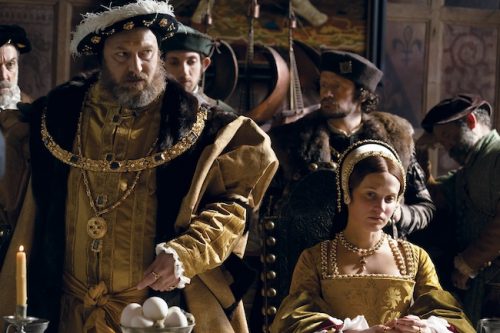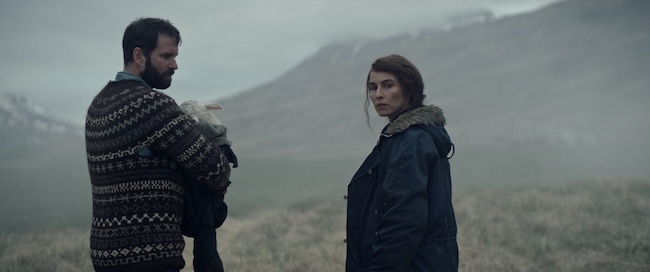
――This film is nothing like I’ve ever seen before, but it’s so grounded in human emotions. I couldn’t stop thinking about it after I watched it.
Valdimar Jóhannsson: Thank you so much! I’m very glad that you couln’t stop thinking about it, because usually my favorite films are the ones that I can’t stop thinking about, even a week after I saw it.
――What inspired you to make this film?
Valdimar Jóhannsson: In the beginning, I started to make a sketchbook just trying to find the right mood and the world that I wanted to work in, because I knew that I wanted to make a film. I didn’t have the whole story and I just had some elements. So I did a drawing of Ada and a lot of photos and paintings of nature. Also, I knew I wanted sheep farmers. That was just the beginning trying to find the mood for it. And then it took some time for us to work on the script.
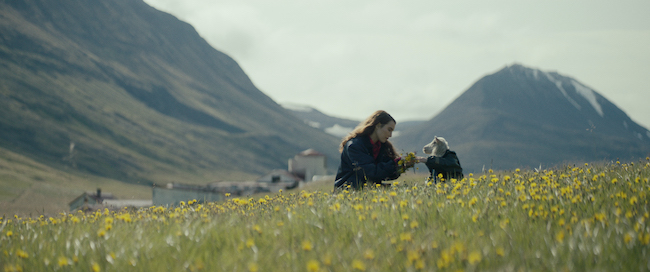
――You worked with the Icelandic poet, Sjón to develop the script. I read that you spent eight years working on this film? How did you guys work together?
Valdimar Jóhannsson: I had this mood book and my producer and friend Sara introduced me to Sjón. We had coffee and I showed him the book. And after that, we decided to work on it together. We were meeting once a week for a very long time. Back then, we were just working with images. When we saw something that we liked, we tried to create a scene into that painting or photo or drawings. So we took a long time to come up with the scenes that could somehow work with these elements like sheep farmers in the nature. It was a very nice process working on the script.
――Before I watched it, I thought “LAMB” was a horror film, but I realized it’s not.
Valdimar Jóhannsson: For me, it’s not a horror film. It’s more like a family drama or… Well, at least it’s not a horror film [laughs.]
――In Japan, there are folktales in which a childless couple finds a baby from strange places as if it’s godsent. Are there any folktale in Iceland that you got inspirations from?
Valdimar Jóhannsson: No, it’s not based on a specific folktale. You can’t find Ada in our folktales. It’s more like these small elements that are in many stories, for example, something happens on Christmas Eve.
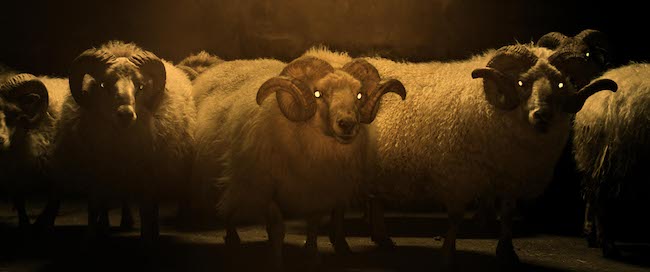
――This film has so little dialogues. I noticed that it’s almost 10 minutes in until anyone starts talking. I really loved how you left that space for the audience to think rather than having explained everything. What does silence mean to you?
Valdimar Jóhannsson: I feel that you don’t have to talk about everything. When you know somebody well, you can read in their body language or facial expressions, and sometimes it’s nice to just have silence. I don’t know what it means for me, but what we wanted to do was try not to explain everything with dialogue. I think it’s more important to see the images and that is like international language.
――They say never to work with animals and children, and you kind of did both at the same time in this film. How was it like on the set?
Valdimar Jóhannsson: We were working with ten children, four lambs and also puppets. So it was strange sometimes [laughs.] We had to do all the scenes first with the puppets, then the children and then the lamb. Working with animals and children was really time consuming, but we had very good animal wranglers and farmers. So it was not as difficult as I thought.
――Maria and Ingvar are confronted with something that they can’t explain, but they are only seeing what they want to see in it. In the film, it felt like nature is another character, and it made me think of how humans are seeing only what we want to see when treating nature, and all the consequences that are happening like climate change.
Valdimar Jóhannsson: Yeah, nature was almost like a character in the script. We treat nature like we can do everything we want and we are the masters. But we cannot control nature. It is much more powerful than us, you know?
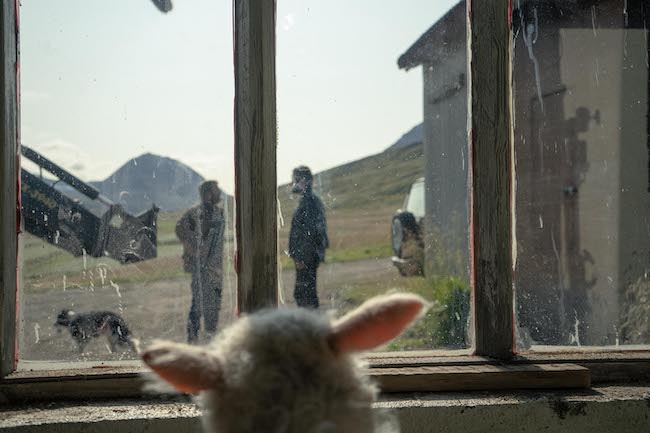
――Maria knows how painful it is to lose a child, though she takes Ada away from her mother. It is a very difficult role to play and Noomi Rapace was great in it. Why did you cast her for this role?
Valdimar Jóhannsson: We knew very early on that she would be perfect for this role. Once she was on board, we talked a lot about Maria and her feelings and all the scennes. Noomi understood the story very well, and did so much work on Maria. We worked so good together.
――Did she really deliver the lamb?
Valdimar Jóhannsson: Yeah, she did that and I think it was her first scene.
――I love how you left it open for the audience to interpret this film. What were some of the feedbacks that surprised you?
Valdimar Jóhannsson: It depends a little bit on where you are screening. If people are very religious, they think it’s a biblical story. One of the strange things is that I’ve met many people that have stopped eating meat after watching the film.
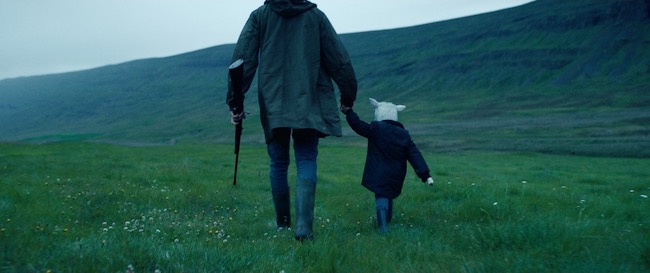
――Now the film is about to be released in Japan, how do you feel?
Valdimar Jóhannsson: I’m very happy about it. I just would love to be there, you know? [laughs] Because I always dreamt about going to Japan. It has always been my plan. So I think it’s a big honor that it will be screened in the cinema in Japan. I’m super happy about it.
――Are you familiar with Japanese culture?
Valdimar Jóhannsson: I really love watching Japanese films. I think probably one of my most favorite films is “the Naked islands.” I think that is wonderful. And of course, I watched a lot of Studio Ghibli films. There are so many good ones and I really like Japanese films.
――What’s next for you?
Valdimar Jóhannsson: I have few ideas in mind but I’m not sure what will be the next. I’m just working on some ideas for feature films. Hopefully, it won’t take so long as it did for “LAMB” [laughs.]
――Is there anything you would like to tell Japanese movie fans who are excited to watch “LAMB”?
Valdimar Jóhannsson: I think they should try to know as little as possible before they go to the cinema. And maybe it’s also good to know that it’s not a horror film [laughs.] But you know, they should try to read as little as possible about it, and just go and watch it. I think that is the best cinema experience.
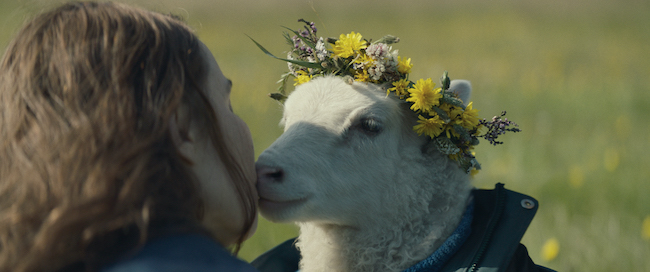
text nao machida





